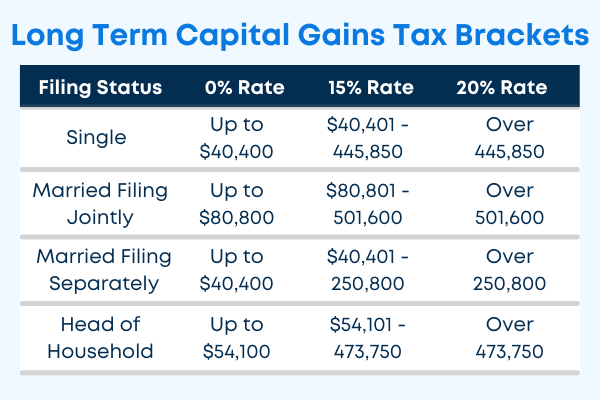If you are an investor or preparing to venture into stocks, bonds, cryptocurrency, real estate, or other forms of capital assets, you must be aware of the tax charge on capital gains. Capital gains are profits garnered from capital assets. When you sell capital assets at an amount higher than the purchase price, then you'll have a capital gain. Capital gains are subject to tax be it long-term or short-term.
It's not uncommon for some investors to deliberately prolong the period they'll hold their asset for -- either for a short while or a long period. For many, capital gain is one of the incomes which gets a favorable tax charge, however, this depends on the type of capital gain tax rate. A short-term capital gain will get a higher tax rate compared to a long-term.
Short Term Capital Gains
What are Short Term Capital Gains?
Short-term capital gains are taxed as income. Short-term capital gains are gains from investments sold in less than a year. When an investor sells early, the proceed is taxed based on the tax bracket of such a person. The income tax bracket of the investor will determine the rate at which the capital gains get taxed. Short-term capital gains can get as high as 37%, there are no special tax rates for it.
Short Term Capital Gains Tax Rates
The usual income tax rate suffices for the short-term capital gain tax. You can check the income tax rate to see how your short-term capital gain will be taxed.
Long Term Capital Gains
What are Long Term Capital Gains?
Long-term Capital Gains get as low as 0% tax charge. At times it could be 15% or 20%. Long-term gains signify that an investor held on to an investment for more than a year. The resulting benefit for such a long holding period is a favorable tax rate. The tax rate on long-term capital gains is lesser.
Long Term Capital Gains Tax Rates
Based on who is filing and the amount, the tax rate on both types of capital gain differs. Find a detailed description of the tax bracket rate below. As you look through, remember that the numbers change year to year.

How to Calculate Capital Gains
Capital gains are taxed and not the entire amount invested. Unlike the traditional income tax, only profit gets taxed. For example, an investment of $100,000 gets sold after a year for $105,000, which is a 5% gain. If the investor is single, the gain of $5000 will be taxed at 15% which is $750 leaving a take-home of $104,250.

Long-Term vs. Short-Term Capital Gains: Which Should You Choose?
The benefit of long-term capital gains tax rate over short-term capital gain is simple; lesser tax charges. So how can you benefit from the long-term capital gains?
Let's see a few ways:
Don't Sell Early
So you may have noticed that keeping an asset for at least a year qualifies your investment as long term. So don't sell early if you want the benefits of a lower tax rate. If you are investing less than $40,000 as a single and $80,000 as married filing jointly, you won't pay any tax on capital gains if your investment stays for more than a year.
The same applies to properties. Give your property a holding period of about two years. When you do this, the capital gain is subject to a reduced tax rate.
Tax-Deferred Accounts
Tax-deferred accounts are good options for investment. Investing in such an account allows your investments to grow tax-free. In as much as it remains in the account, the capital gains won't get taxed until the entire proceeds are withdrawn. 401(k) plans, Roth IRA accounts are tax-deferred accounts to use alongside the 529 college savings plans.
Note:
There are few exceptions to how capital gains are taxed. While short-term investment is always the same, long-term investment differs for some investments. Collectible assets which include items like antiques and precious metals are taxed at 28%.
If you own certain investments, consider holding on for more than a year to enjoy long-term capital gains tax rate. And as for assets like a home, ensure you hold on for two years or more.

Need help with your taxes?
Finding the right accountant has never been easier. In just 5 minutes, we'll get to know you, your business, and the kind of help you're looking for.


